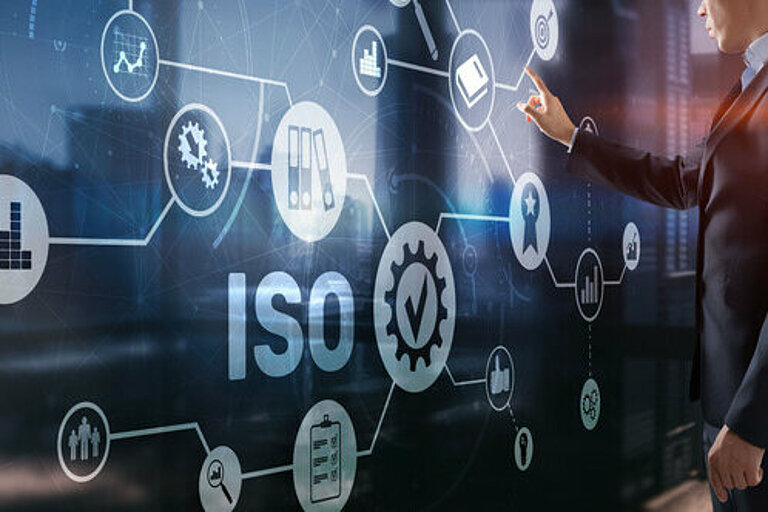Publications
![[Translate to Englisch:] [Translate to Englisch:]](/fileadmin/user_upload/Presse_und_Medien/mediathek/YouTube-Vorschaubild/NOA-Namur-Open-Architecture-Connectivity.jpg)
Achieving the transformation to a climate-neutral and sustainable society and economy, while maintaining prosperity, needs the responsible and consistent use of technology and innovation, as well as comprehensive electrification and digitalisation. This requires norms and standards.

Standardisation enables the transformation of our society and economy towards a CO2-neutral all-electric society and thus ensures a future that is worth living.
Without a comprehensive framework, interface definition and the creation of interoperability through standardisation, especially in the field of electrical engineering, electronics and information technology, this task cannot be achieved.
In addition, standards are an important market access instrument. If trading partners can operate on a level playing field through generally recognised standards, trade barriers are removed and both the movement of goods and exports are simplified.
1. Strong international standardisation
To counteract the increasingly strong role of individual states in standardisation and the associated risk of fragmentation, international standardisation must be further strengthened. This is the only way to maintain unhindered global trade. We advocate open markets according to the guiding principle: "One test, one standard, accepted everywhere". International cooperation is the key to this. The international standardisation organisations ISO and IEC are the relevant institutions. German and European policy should therefore promote the use of international standards throughout the world.
2. High importance of standardisation in companies
Standardisation is know-how and should also be regarded as a personnel qualification that must be part of education and training. It is important for companies to build up their own standardisation expertise. Companies that are actively involved in standardisation should be supported by a tax allowance for standardisation.
3. Strategic coordination of business and politics
Standardisation is the task of business and industry; all interested parties can participate to ensure a broad social consensus. At the same time, however, standardisation is becoming increasingly political and strategic. Ultimately, it is teamwork: We therefore need stronger strategic coordination of industry with the public and politics.